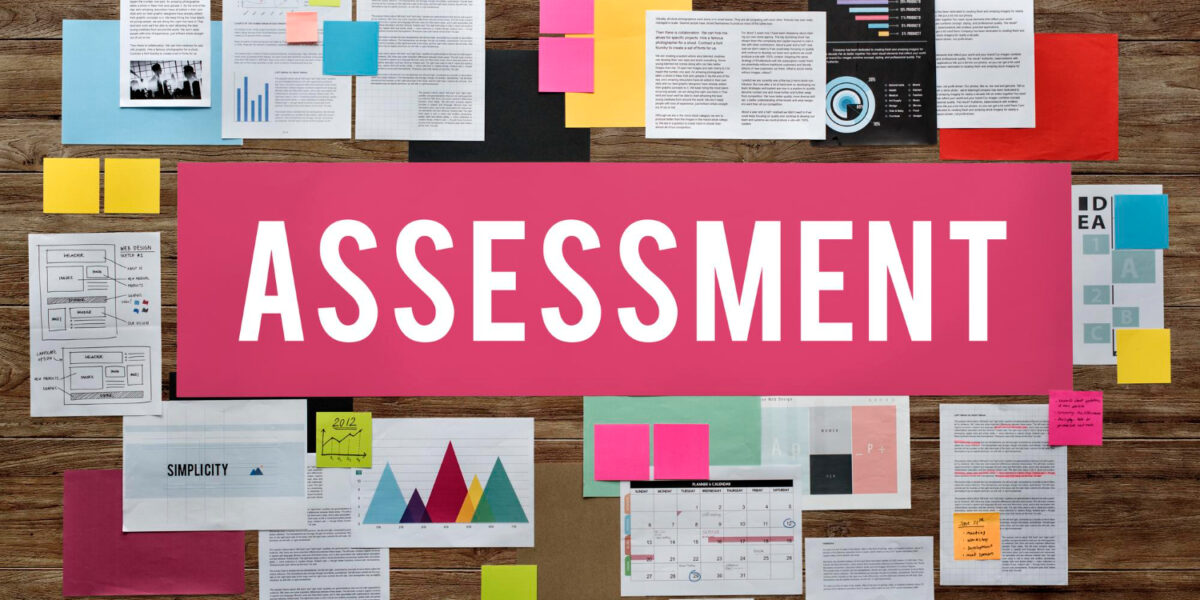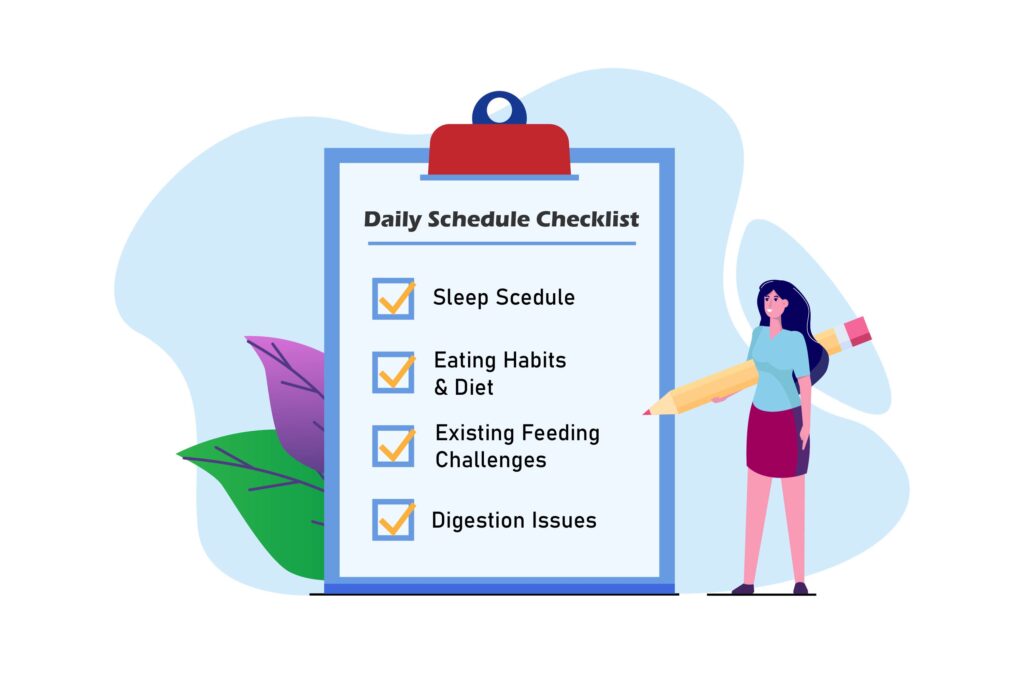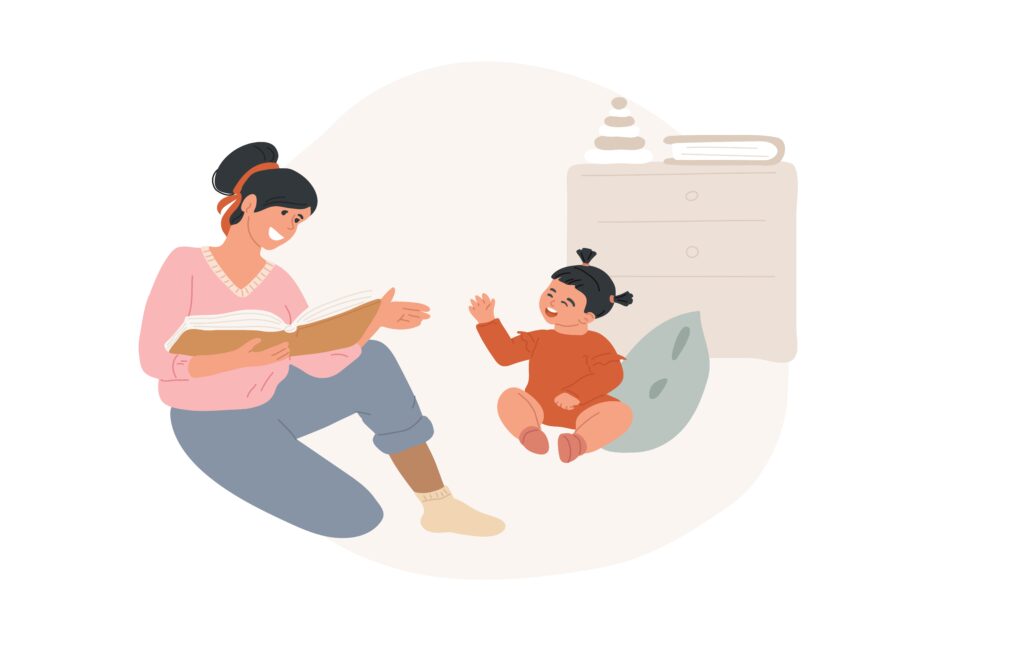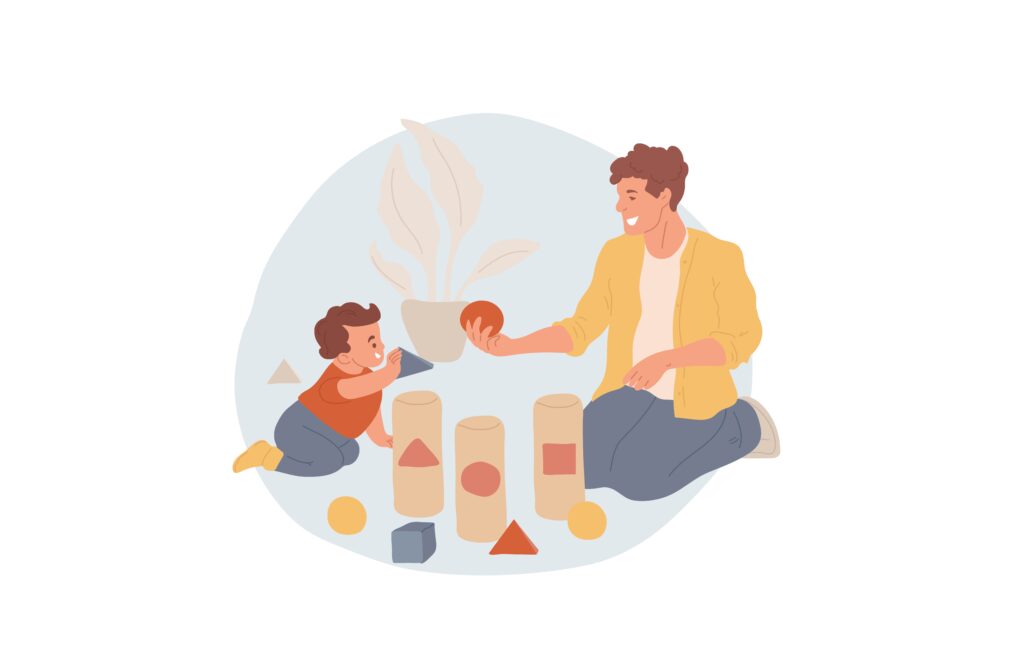
Our Assessment Criteria

Assessments focus on the following 5 criteria to track the child’s progress
Pre-Linguistic Skills (PLS)
Pre-linguistic development forms the foundation on which language and communication skills develop.
A child’s ability to establish and sustain eye contact, sit in a place for a longer duration, comply with others’ instructions, joint attention and awareness of his/her surroundings are all pre-linguistic skills.
Developmental Profiles
We assess children on the Com DEALL Developmental Checklists. Every child is assessed on eight domains of development which include Gross Motor, Fine Motor, Self-Help Skills, Receptive Language, Expressive Language, Cognition, and Social & Emotional Skills.
These checklists have been standardised for the Indian population and can be used for children in the age range of 0 to 6 years.
Oromotor Skills
Oro-sensory and Oromotor skills are assessed (on the Com DEALL Oromotor Checklist) to understand the status of the articulators, i.e. the jaw, lips, tongue and vocal cords. Challenges in this area can affect the child’s ability to feed and speak.
Oromotor Checklists are used to assess the children and monitor their response to intervention.
Sensory Profiling
Assessing based on Winnie Dunn’s Sensory Profiles helps to understand the child and plan appropriate intervention.
Many children with Autism have difficulty processing everyday sensory information such as sight, smell, sounds, touch, etc. For example, some do not like to be hugged, while others are constantly on the move.
Such behaviour is related to their sensory challenges.
Pragmatics & Higher Language Development
Additional tests include Test of Pragmatics, Tests for Higher Language Development such as Linguistic Profile Test, Manipal Manual of Adolescent Language Assessment, North-Western Syntax Screening Test, Michelle Garcia Winner’s Social Skills Questionnaire and Theory of Mind Inventory.
Our Program Overview

We follow a developmental approach, intervening at the functioning level of the child, giving them the skills to ‘learn how to learn’. Our focus is to ensure your child experiences success at every stage, providing a positive and nurturing environment by stepping into the child’s world.
Our approach evolves with developmental stages, providing support for building foundational skills, navigating social and emotional challenges, and fostering independence for a fulfilling future.
We take a developmental approach with young adults, meeting them at their current level of functioning and empowering them with the skills they need to navigate life’s challenges. Our goal is to help them build meaningful connections, enhance self-awareness, and foster independence in a supportive and respectful environment.
Our work is deeply influenced by evidence-based practices such as Occupational Therapy frameworks, Kelly Mahler’s interoception curriculum, and Garcia Winner’s Social Thinking® approach, as well as the lived experiences and insights of neurodivergent individuals. This unique combination ensures our interventions are practical, empathetic, and tailored to the diverse needs of young adults.













Our Intervention Process includes the following stages.
Physiological Needs & Daily Schedule
Addressing physiological needs early on helps the child settle in better into the intervention process. Our team will help you build a steady, daily schedule establishing healthy & positive behaviours for the child.
This first step will help the child reduce anxiety and temper tantrums.

Pre-Learning Skills

All team members work on Pre-Learning Skills such as sitting tolerance, eye contact, compliance, joint attention, sustained attention, and awareness.
This will help the child to explore and learn from the environment.
Sensory Motor Development
An Occupational Therapist will work on Sensory Motor Development. Communication work is put under the spotlight as Pre-Learning Skills and Sensory Motor Development fall into place.
This will help the child process the world better.

SPEECH & LANGUAGE THERAPY
Children on the Autism Spectrum often find communicating quite challenging as gestures and speech are difficult for them. The focus early on in therapy is on encouraging communication in any manner possible, be it gestures, pictures or sounds.
This will build a strong foundation on which speech can develop.
Let’s help your children find their true, inner voice!
Developing Speech & Communication
We follow a Total Communication approach. Communication is facilitated through a variety of techniques such as
- Parallel Talk
- Self-Talk
- Oromotor Exercises
- Proto Vocabulary
- Visual Supports
- Story Grammar Marker
- Social Stories & More
Usage of Speech & Communication
Once the child begins to communicate, our Speech & Language Therapist will monitor and build their Pragmatic Skills such as
- Greeting & Requesting
- Being able to say Yes/No
- Commenting on People/Things
- Asking Questions
- Conversation & Narrative Skills
Building Higher Communication Skills
For middle school children, adolescents and young adults we use the Theory of Mind principles to build skills such as
- Drawing Inferences
- Perspective Talking
- Understanding Lies vs Humor
- Teasing vs Bullying
- Complex Social Judgement
Methods for Non-Verbal Children
Children who find speech difficult are helped through a variety of Alternate Augmentative Communication methods such as
- Electronic Devices to Communicate – The AVAZ App
- Gestural Communication
- Communication Books
These are a few factors that indicate prognosis for the development of speech.
The Age Factor
Older children may find communication more challenging. The earlier the intervention is initiated the better it is.
Recommended Age: Below 2 Years
Degree of Oromotor Involvement
Difficulty/inability to blow, suck through a straw, chew well, phonate (make a sound) on command, move the tongue easily, etc, are all signs of Oromotor difficulties. Children with severe Oromotor involvement will find speech difficult.
Co-Morbidity (Difficulties in Addition to Autism)
Communication could be harder if the child has problems in addition to Autism (like severe anxiety, mental retardation, uncontrolled seizures, hearing impairment, etc).
Degree of Parental Involvement
Research states that 25 hours a week is required to optimise the child’s potential. There is a direct correlation between the amount of child-directed language input and the child’s vocabulary. Therefore, the degree of parental involvement impacts the child’s development.
However, forcing the child to speak is a big No No!
OCCUPATIONAL THERAPY
Children with autism are known to have difficulties with sensory and motor activities. An Occupational Therapist is trained to work with children facing these difficulties.
Sensory Integration Therapy
Our Occupational Therapist will work to address the challenges your child may have in coordinated functioning of the various senses such as touch, smell, sight, vision, hearing, proprioception etc.
Working on Sensory Integration will help the child
- Reduce Restlessness
- Improve Attention
- Handle Hair & Nail Cutting
- Sleep
- Messy Play
- Handle a Variety of Food Textures
- Tolerate Loud Sounds
- Respond to their Name
Motor Difficulty in Autism
Children with Autism are also known to have motor challenges.
A variety of exercises tailor-made to your child’s requirements are used to develop Motor Skills such as
- Pointing
- Play Skills
- Imitating Actions for Nursery Rhymes
- Colouring
- Handwriting
- Communicating Using Gestures
Activities of Daily Living
The Occupational Therapist also works on the child’s activities of daily living.
We help the child develop and utilise skills required for
- Brushing Teeth
- Eating
- Toileting
- Bathing
- Combing Hair
- Dressing
- Travelling
PRESCHOOL CONCEPTS
The developmental educator and our team work to build your child’s preschool concepts.
Pre-Academic Skills
Working on pre-academics gives children an opportunity to do well as this is an area of strength for many. Which in turn builds their self-esteem. It also ensures that there are no gaps in learning when they enter mainstream school.
Some of these areas of pre-academic strengths are
- Numbers
- Colours
- Alphabets
- Rhymes
Independent Functioning Skills
We help children integrate seamlessly into mainstream classrooms by working on their Independent Functioning Skills such as
- Toileting
- Independent Feeding
- Eating from the Lunch Box
Social Skills & Emotional Skills
We work on helping children develop
Social Skills
- Playing Skills (Pretend Play, Playing with Blocks, Playing in the Park)
- Circle Time
- Group Activities
- Recognising Emotions
- Expressing Emotions (Happy, Sad, Frustrated, Embarrassed etc.)
- Regulating Emotions
Testimonials






